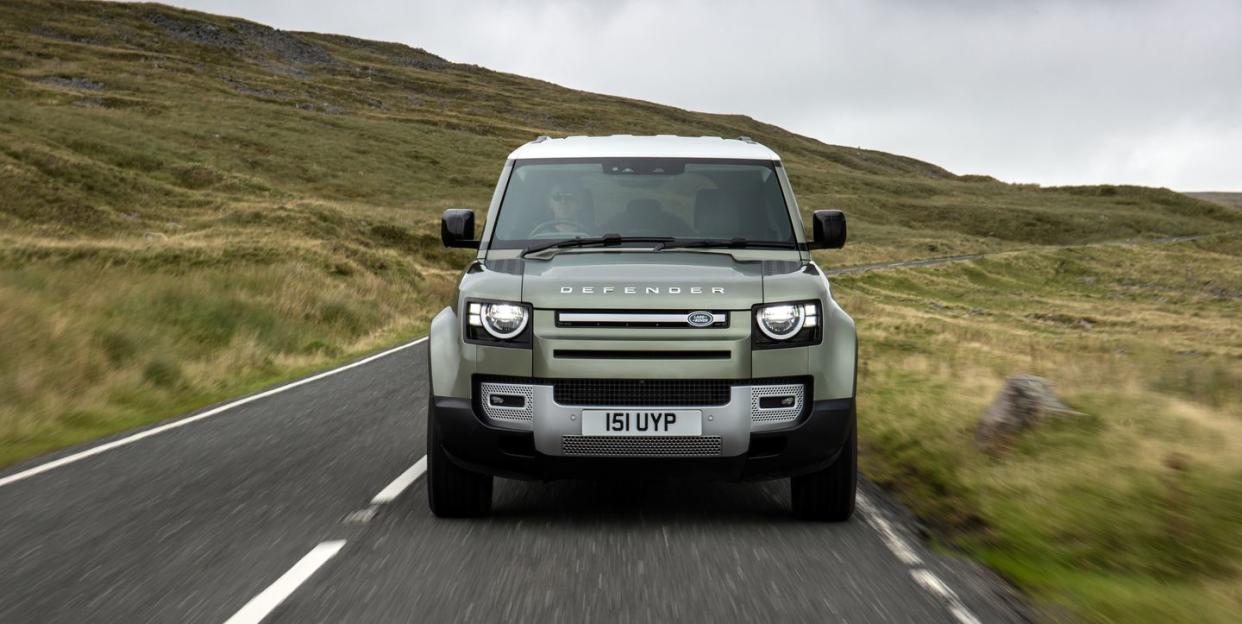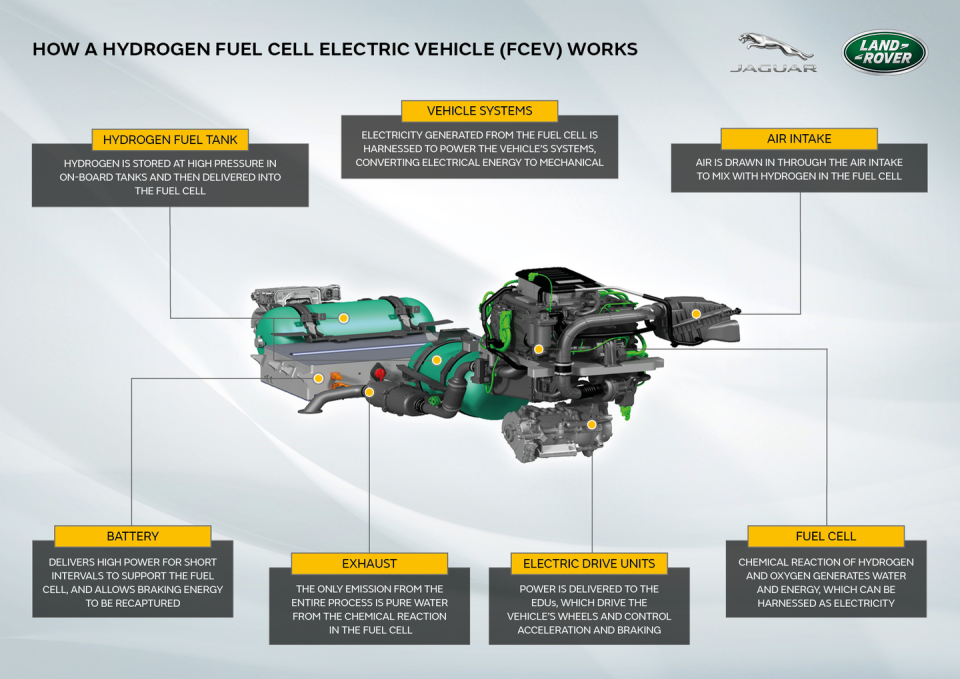Land Rover Is Developing a Hydrogen Fuel Cell Defender Prototype

Land Rover revealed Monday it plans to develop a hydrogen fuel cell electric vehicle (FCEV) prototype based on its rugged Defender SUV. Testing of the vehicle is set to begin toward the end of 2021, though the company did not confirm whether it plans to create a production variant down the line.
According to a press release, Land Rover says this new prototype is part of the company's goal of achieving zero tailpipe emissions by the year 2036. Hydrogen fuel cell EVs use hydrogen to generate electricity which, in turn, powers an electric motor. Though they aren't as popular as pure electric vehicles, the ability to rapidly refuel and the minimal loss of range in low temperatures means FCEVs do have a handful of advantages over purely electric vehicles, especially larger ones that require long-range capabilities.
The number of fuel-cell-powered vehicles on the road has nearly doubled since 2018, according to Land Rover, while fueling stations are up over 20 percent. By 2030, forecasts predict there could be over 10 million FCEV vehicles on the road, and 10,000 fueling stations worldwide.

“We know hydrogen has a role to play in the future powertrain mix across the whole transport industry, and alongside battery electric vehicles, it offers another zero tailpipe emission solution for the specific capabilities and requirements of Jaguar Land Rover’s world class line-up of vehicles," Jaguar Land Rover head of hydrogen and fuel cells Ralph Clague said in a statement.
Would you be interested in owning a hydrogen fuel cell-powered Land Rover? Would you prefer one over a purely electric variant? Let us know your thoughts in the comments below.
You Might Also Like

